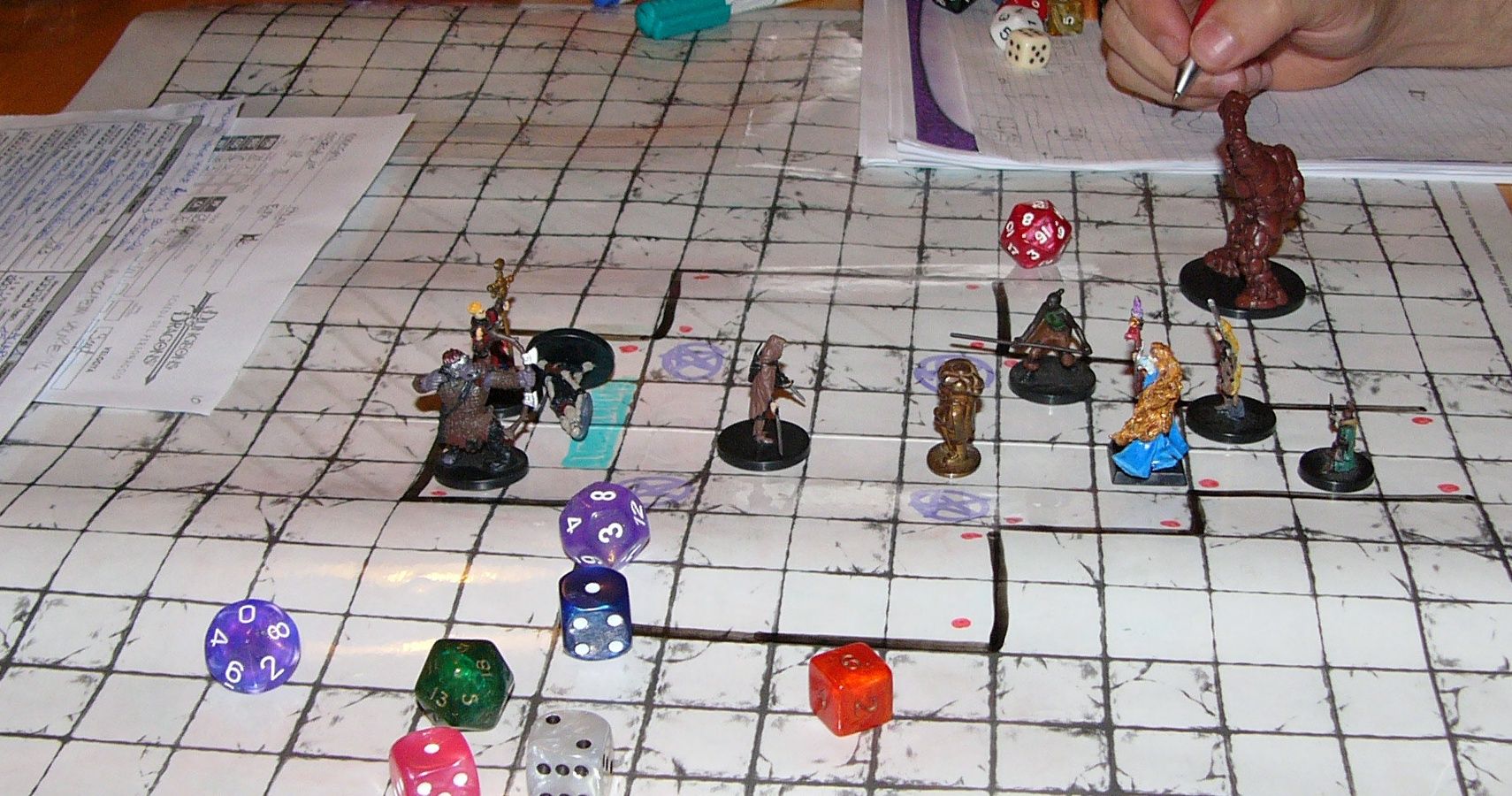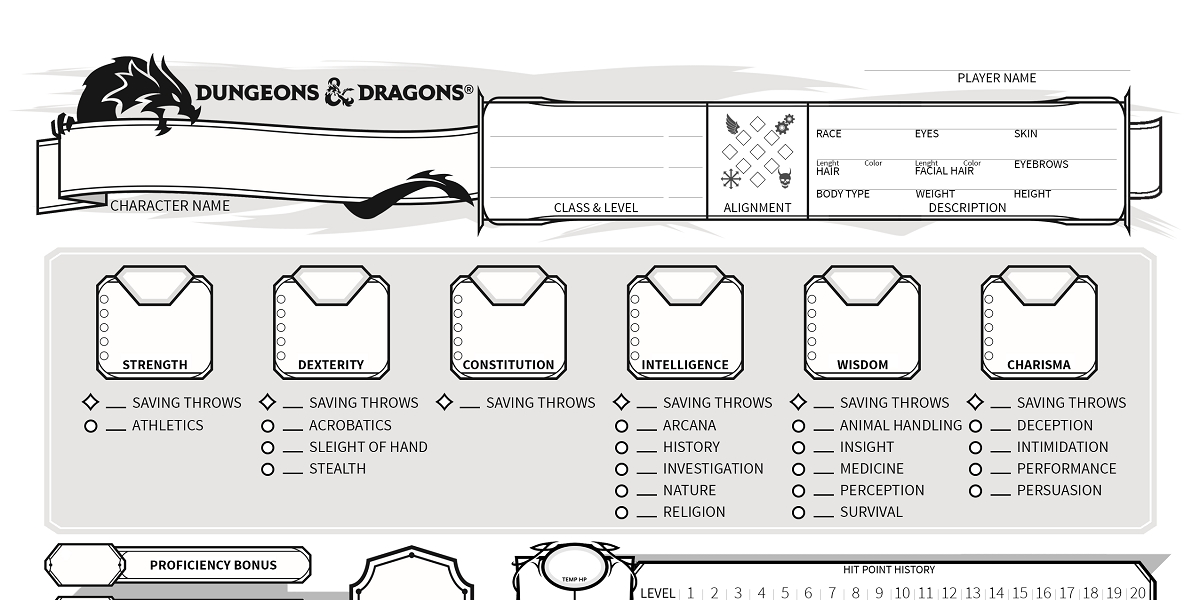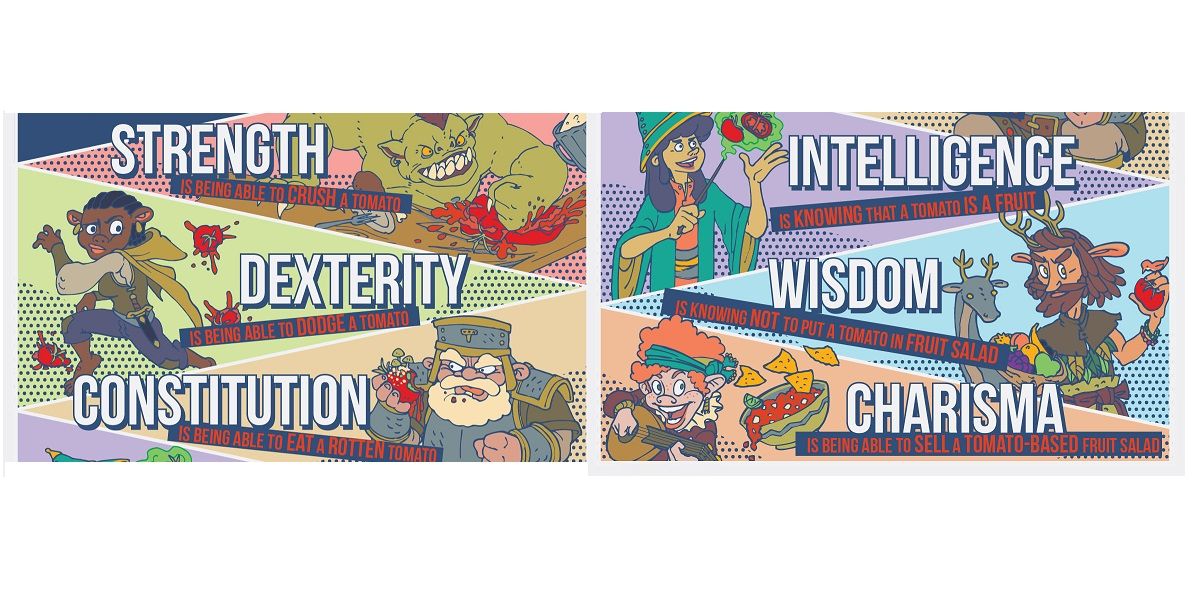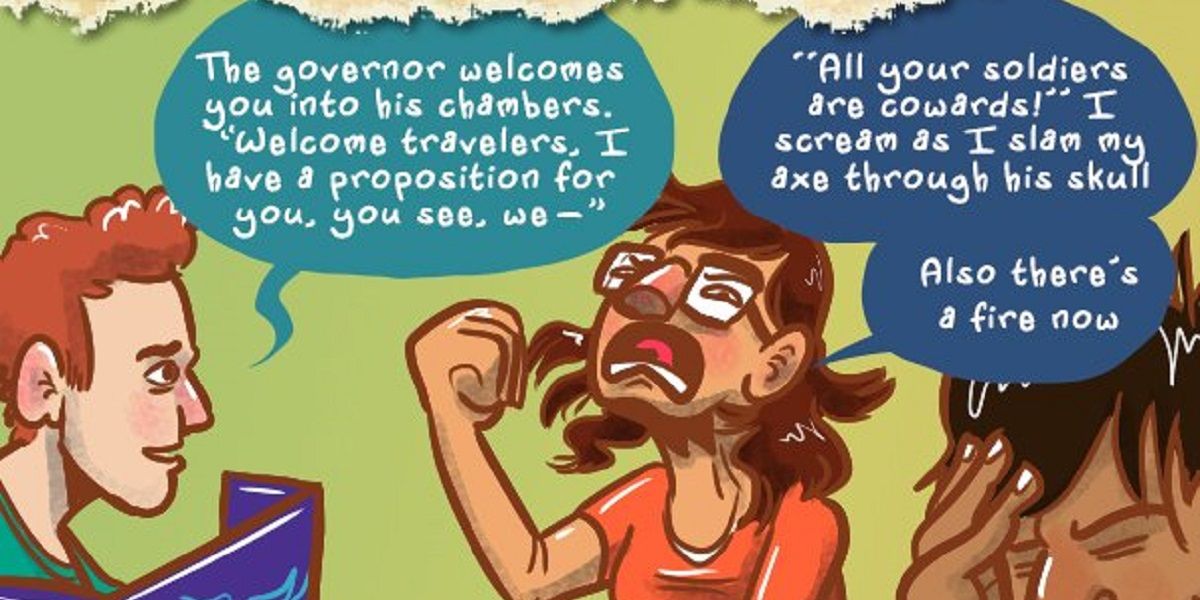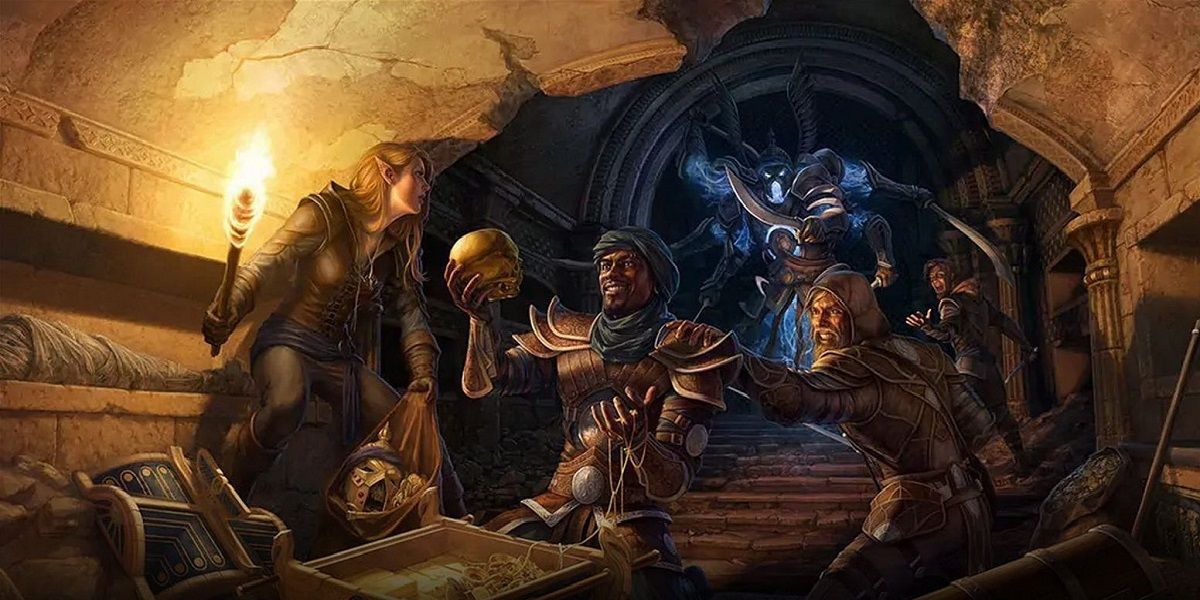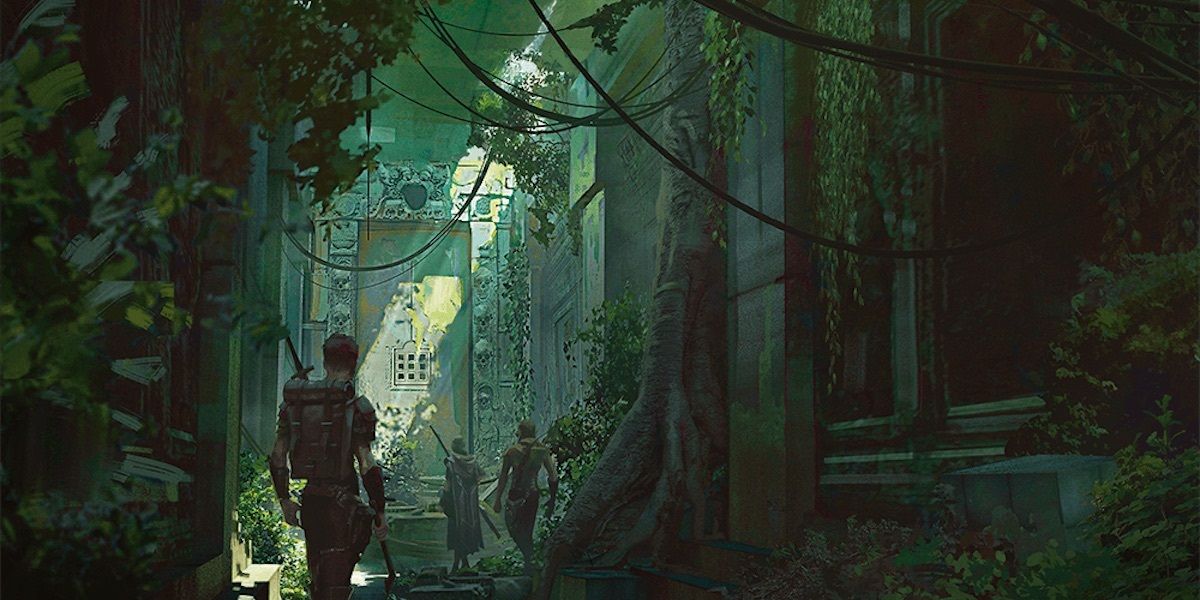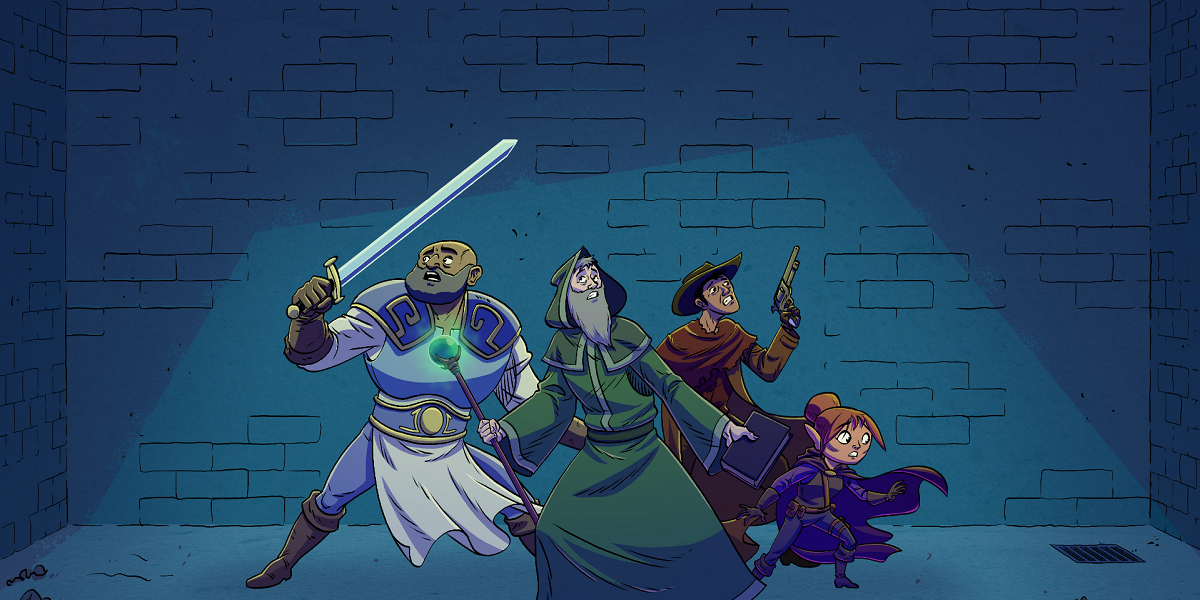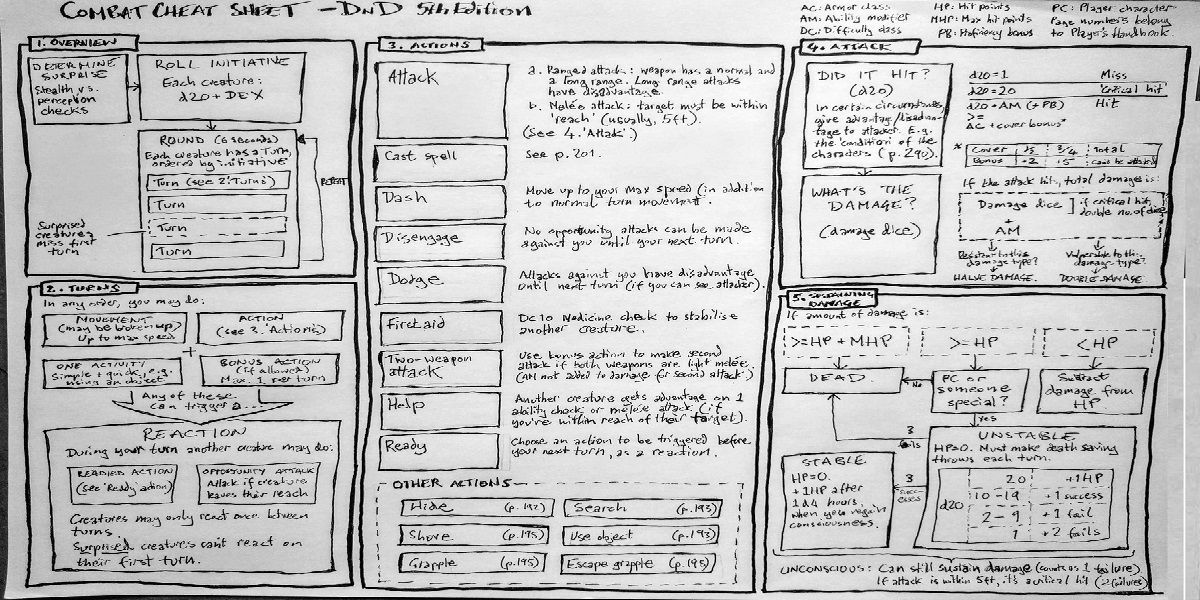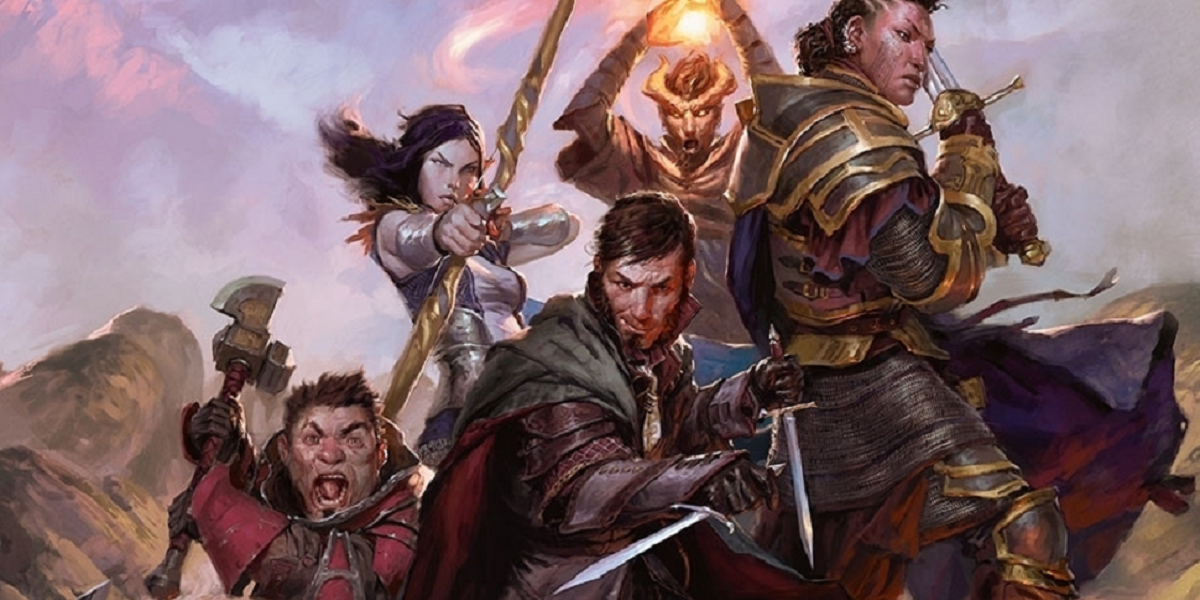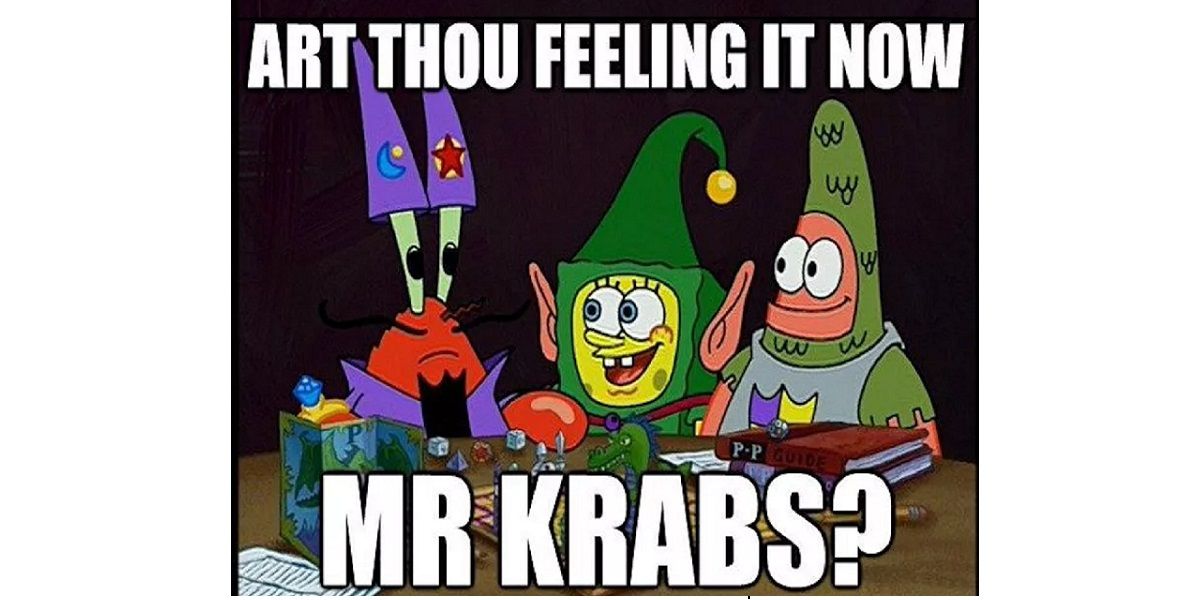It can be daunting playing your first session of D&D, it can seem like everyone else knows what they are doing and you are just out of the loop. Strange words come flying at you and everything seems like melange as the party engages in dialogue with an NPC and the DM starts doing funny accents. Your not sure what to do, your not even sure you can do anything.
Don't worry this article should clear some stuff up for you, it'll be broken down into characters, dialogue, exploration, combat, and fun. These should help you get a sense of what D&D is all about, and you don't have to overthink your first session.
10 Characters: How Do You Make One?
You might have the chance to make your own character in D&D for your first session. Maybe the DM or a friend will have a pre-made one there for you. Regardless the first step is knowing which and how you're going to make the character. So just ask your friend, the person who invited you or the DM what they expect from you.
Once you know, just go with it. Ask your friend or DM if there's some character material you can use. You can also go online and search easy character builds for first time players, choose what feels right for you. Your first character and how you see and use them is important for your confidence for the first time you play.
9 Characters: How Do I Use The Character?
In theory, you can use the Character however you want, in practice, the sky's the limit till the DM says no. You're going to have lots of stats on your sheet, numbers are going to be EVERYWHERE, it's going to be overwhelming to figure out what they all mean. The upshot is it's all pretty straight forward, everything means what you think it means.
Str is Strength, Dex is Dexterity, Con is Consitution, Wis is Wisdom, Int is Intelligence, and Cha is Charisma. These are the most important facets of your character and you'll add them to pretty much most roles you do. What your adding is the modifiers, these will be based on the number for each [6= -2, 8= -1, 10= 0, 12= +1, 14= +2, 16= +3, and 18= +4]. You'll add that plus or minus to the roles the DM will ask you to make. If you don't know which to add don't be afraid to ask the DM or another player!
8 Dialogue: When Does It Happen?
Dialogue can happen whenever the party wants. Even between characters. Just tell the DM you want to talk to a person nearby, based on where the DM told you you are, just choose someone close by. Don't want to talk to someone close by? Ask a person nearby where someone you might WANT to talk to is, they'll likely point the way.
Anytime a person who exists in the game world approaches you Dialogue has begun, the DM will likely prompt you and then start talking in character as the person. You can respond to how you want at this point, talkback about what you know, take physical action, etc. The person will likely respond to your actions so be aware of what they might mean.
7 Dialogue: How Do I Do Dialogue?
You talk to the person in character, the character you chose at the start of the game. You can talk to them about whatever you want, generally though the topics will surround in-game things. You have to tailor your talking to whatever the person and party are trying to accomplish.
In this situation, you can lie, ask questions, make statements, or insult others. Think of it like your an actor, you're playing a role in a play, just ad-lib your way through it the way YOU think you should. It's your character, you get to make the decisions for it.
6 Exploration: What Can I Explore?
Anything and everything in reach. You can examine the inside of whatever the DM describes when they mention the environment your in. Did they not give a good enough description of what's around you? Extrapolate, discern what might be in such an environment and ask the DM if it is.
If you're in a tavern, there might be ale mugs on tables, ask if there are. The DM will say yes, and then you may go and check to see if any ales left in it. The DM may say there still some unfinished ale left, you may ask to drink all the unfinished ale in the mugs you find, the DM will say yes, and then glare at you. Don't forget, however, exploring the inside of other people's pockets and removing things is considered theft.
5 Exploration: When Can I Explore?
Think about it like a movie or story. If in a movie, a group of people comes to a new city for the first time they'll want to do different things. Some might want to see the sights, some may want to find a hotel and sleep, some may want to talk to an authority figure if they've seen a crime, some may want to find a place to hide if they've committed a crime.
There's really no wrong or right time on when to explore, the only right time is when YOU want to explore. If something that was described interests you think about what you might want to know about it or do to it, then ask your DM.
4 Combat: What Do I Have To Know?
Combat is surprisingly simple, everyone takes turns performing actions. You and the enemy will hit and cast spells at each other till it's over. You'll have four or five things that are important to keep track of though. When your turn is, roll your D20 and tell the DM the number. Your HP, which is how many times you can get hit before your unconscious.
Your weapons, what you have to strike with should be written down and what it does. Where you are, ask the DM, tell them how you want to position yourself and maybe your spells and spell modifiers (if you're a magic-user).
3 Combat: How Do I Attack?
This is the easy part, you use magic if your a caster, or a weapon if your pretty much anything else. If you have a bow or magic you want to stay far back and attack, identify your enemy and shoot. If you have something like a sword you, want to identify an enemy, move towards them, and then attack. Listen to the DM or ask specifically if something is allowable.
There are handy flow charts for different actions and when they occur that you can find online to help you in combat, feel free to use them while playing.
2 Fun: I Can Do Whatever I Want?
To a degree, a good rule of thumb is to think about the other people playing. Pick up on the cues they drop as they will be good guides. You want to have fun together not at the expense of anybody. That being said even in the realms of high fantasy it's never a bad thing to abide by common courtesy.
Think about your actions and what a person might do in a fantasy movie if you did something like what you plan to do. So don't stab EVERYONE you meet in the face, only SOME of the people you meet.
1 Fun: I'm Still Confused, Is That Normal?
It's going to be like that for the first few sessions. Just keep at it and you'll find a rhythm. You'll get the hang of acting in character and maybe enjoy the suspension of disbelief as you and your party tells a communal story. It's not really meant to be a straight forward experience and always remember rule zero; the books are just guidelines, you're truly playing D&D when you're adhering to the spirit of the game, not the written rules.

